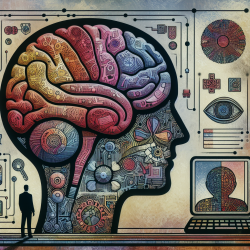Introduction
The cerebellum, once thought to be solely responsible for motor functions, is now recognized for its significant role in cognitive processes, including language and social interactions. Recent research, particularly the study "Autism Spectrum Disorders and Neuropathology of the Cerebellum" by Hampson and Blatt, has shed light on the cerebellum's involvement in autism spectrum disorders (ASD). This blog aims to provide practitioners with insights from this research to enhance their therapeutic strategies and encourage further exploration into this critical area.
The Cerebellum and Autism
The cerebellum contains the largest number of neurons in the central nervous system, playing a crucial role in various cognitive functions. In the context of ASD, cerebellar deficits have been linked to language and communication challenges, social interaction difficulties, and repetitive behaviors. Understanding these connections can help practitioners tailor their approaches to better support individuals with ASD.
Key Findings from the Research
- Neuropathological Abnormalities: Studies have revealed structural abnormalities in the cerebellum of individuals with ASD, including changes in Purkinje cells and other cerebellar components.
- Genetic Implications: The research highlights the role of genetic mutations affecting the cerebellum in contributing to the autistic phenotype, emphasizing the need for genetic screening and personalized interventions.
- Cognitive and Language Functions: The cerebellum's involvement in higher cognitive functions, such as language processing and social cognition, underscores the importance of integrating cognitive therapies in ASD interventions.
Implications for Practitioners
Practitioners can leverage these findings by incorporating cerebellum-focused strategies into their therapeutic approaches. This may include:
- Utilizing cognitive-behavioral techniques that address language and communication deficits.
- Implementing social skills training that considers cerebellar involvement in social cognition.
- Exploring genetic testing and personalized treatment plans for individuals with identified cerebellar abnormalities.
Encouraging Further Research
The study by Hampson and Blatt opens avenues for further research into the cerebellum's role in ASD. Practitioners are encouraged to stay informed about emerging studies and consider participating in research initiatives that explore cerebellar interventions.
To read the original research paper, please follow this link: Autism spectrum disorders and neuropathology of the cerebellum.










